The little-known world of the tap water tasters
- Published
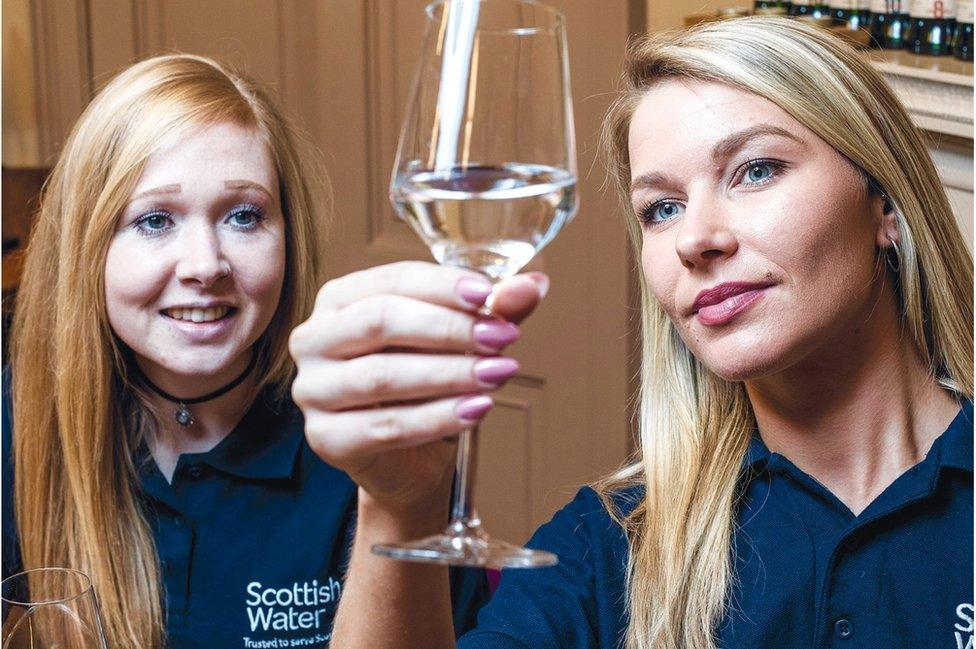
Sarah Sinclair and Greta Cepanonyte demonstrate their water tasting skills
Like a wine taster, Sarah pulls the glass towards her nose and swirls the contents to release the complex aromas before tasting and spitting into a bucket.
She is highly-trained and expert in picking up any abnormal odours or tastes but it is not wine in her glass, it's tap water.
Each year 15,000 samples of drinking water from across Scotland are checked by a team of 23 tasters.
Their noses and tongues detect anything from too much chlorine, which is added to disinfect all tap water, to earthy, fruity, milky or yeasty taints.
The tasters are not there to test the safety of the water but to make sure it smells, tastes and looks right.
Odours and tastes
Scottish Water says it has already undergone rigorous safety checks before it is run through the taps and again when the samples arrive at the lab.
About half the samples are collected by Scottish Water officers from supplies around Scotland and the rest come from homes where people have complained that something is wrong with their water.
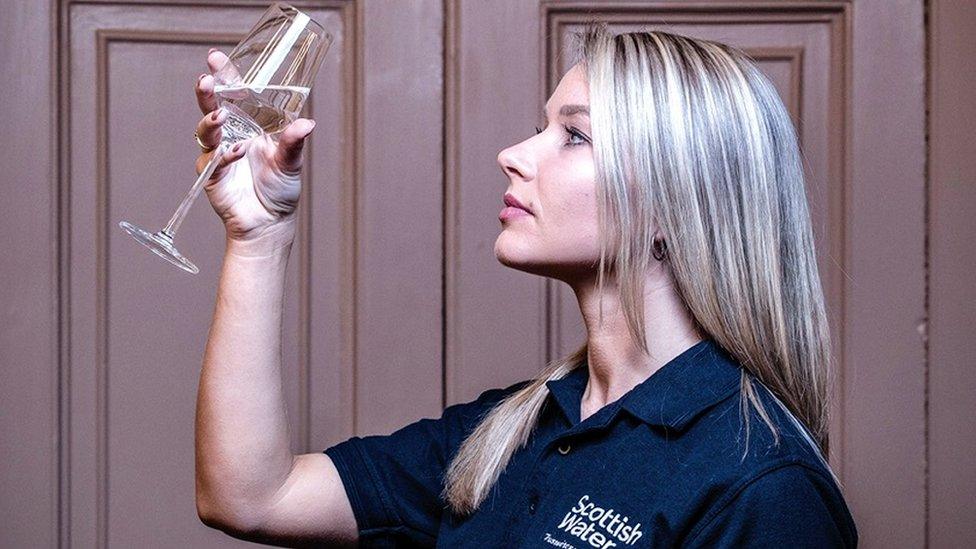
Greta says they have been trained to a high level
When you enter the testing lab at Juniper House, on the Heriot-Watt University campus on the outskirts of Edinburgh, it is the warmth that you first notice.
The tasting room is kept at a constant 25C to keep any odour-causing molecules in the samples in a volatile state - making them easier to identify during the testing process.
Instead of the usual laboratory beakers and test-tubes the walls are lined with shelves covered in wine glasses.
Sarah Sinclair, 29, who has a zoology degree and Greta Cepanonyte, 27, who has a biomedical science degree, are two of the scientists at the lab.
Sarah said: "When we explain to people about our job they think all we do is drink and smell water but it is much more than that and we have become experts in the odours and tastes of water.
"I can tell the difference between the water that comes from my tap at home compared with the one at work or restaurants and bottled water.
"I had no idea what was involved before I took this job and I have to say I absolutely love it."
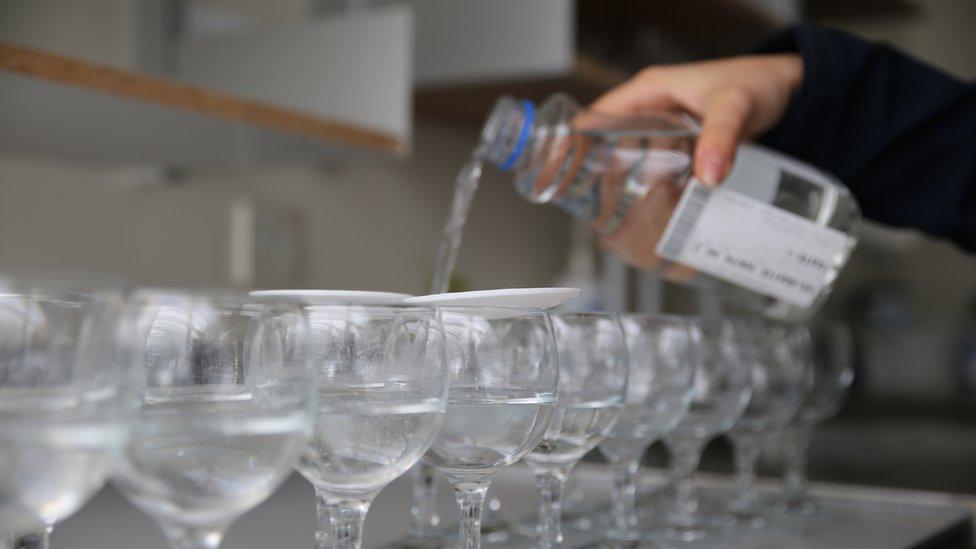
Each glass is filled with 60ml each of sample water
The tasters don't wear lab coats because they don't want cross-contamination from the other labs.
"We also don't swallow as we would become very bloated from the amount of water we have to sample," Sarah says.
Every morning, including Christmas Day, the tasters fill between 20 to 40 wine glasses with 60ml each of water from samples sent in from officers all over Scotland.
Each glass then immediately has a lid, called a watch glass, placed over the top to retain any vapours and odours.
The samples are tested first in the microbiology department to make sure they are safe before being stored overnight in a cyclic incubator to get them to the optimum 25C for tasting.
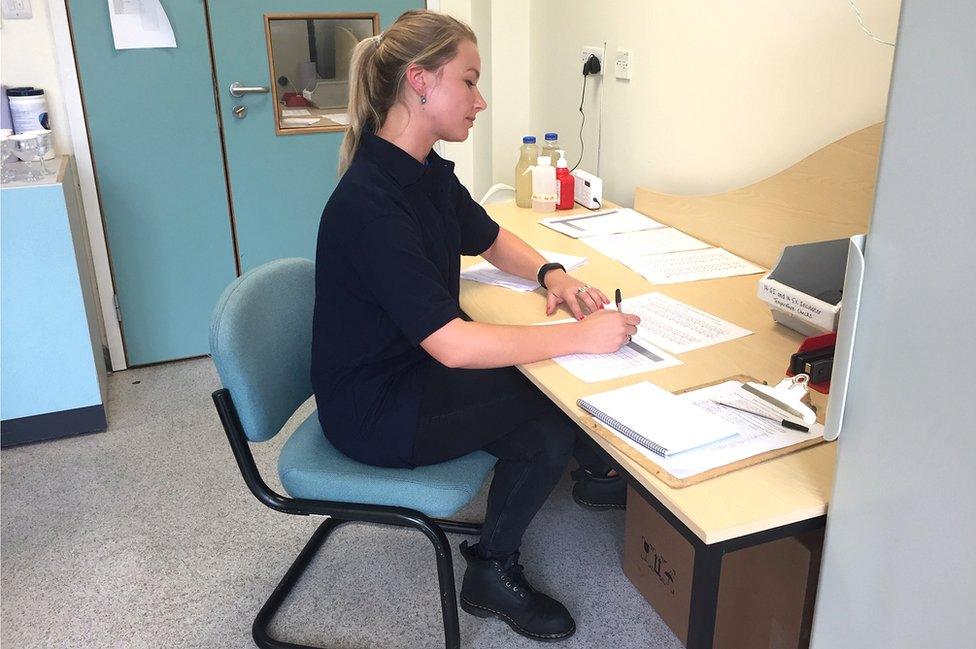
The water tasters record tastes and odours
Where customers have complained their water has tasted too strongly of chlorine, the tasters add a chemical to de-chlorinate samples.
The chlorine could be masking any odours or tastes so they remove it to see if there are also any underlying problems with the water.
The testing involves a blind panel with every fourth sample being a control one, which is bottled water.
There is also always one sample that has either vinegar, lemon juice, vanilla extract or almond extract added to keep them on their toes.
If they cannot detect the added ingredient then it indicates they must stop testing.
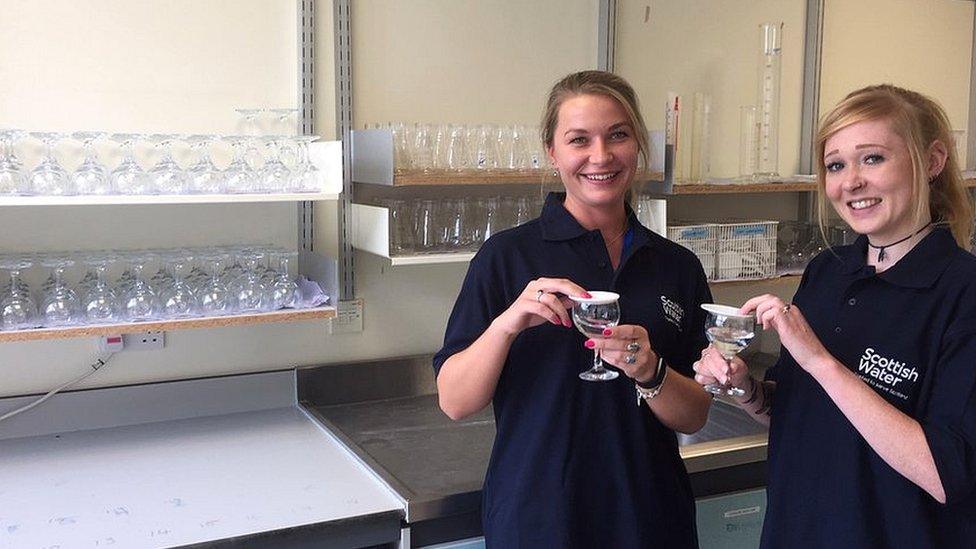
Each glass has a lid placed over the top to retain any vapours and odours
Bottled mineral water does not have chlorine added to it.
The tasters use bottled water to clean their palates and every 10 samples they take a 10-minute break. Three water tasters undergo the testing each day.
Greta says they have been trained to a high level.
"During our training we were given several different tasting pills, which we dropped into water so we could train our palates.
"There were flavours such as musty, rotten vegetables, onion, metallic, earthy, boiled eggs and antiseptic.
"We are not allowed to do the testing if we have a cold sore or a sore throat and we must not have eaten or smoked an hour before testing.
"I detected petrol last week in a sample when I sniffed it, so I didn't drink it. It turns out it had come from a private water supply at a cottage.
"We put an exclamation on the lid in these cases and send them off to public health."
So are they also experts in wine tasting?
Greta said: "I do like wine but I'm definitely no expert."